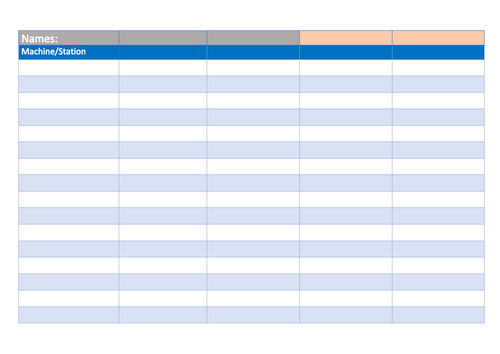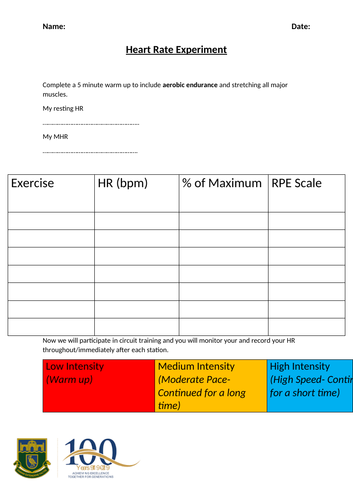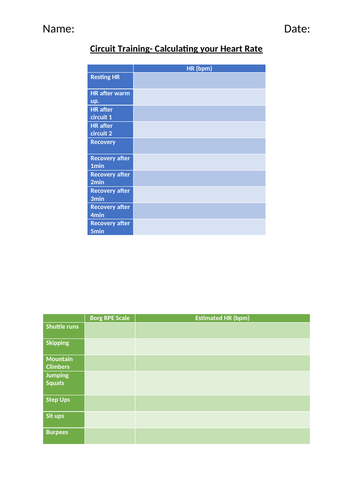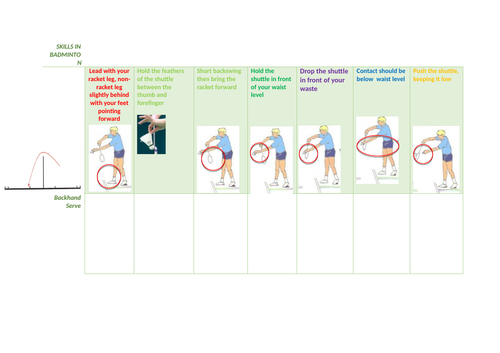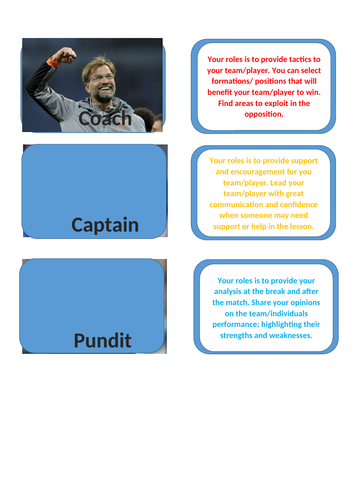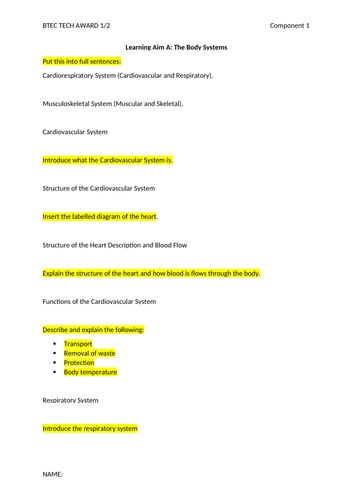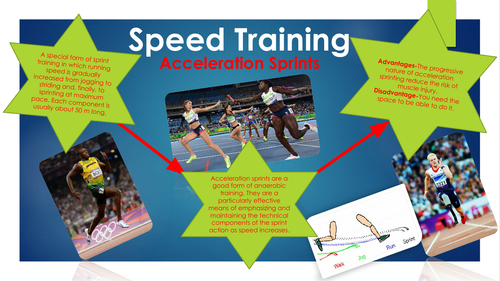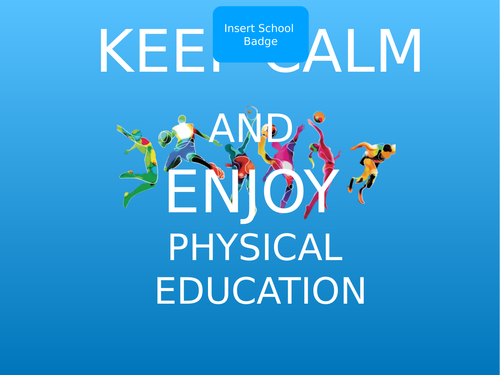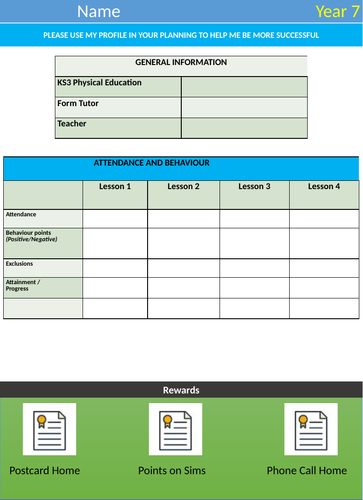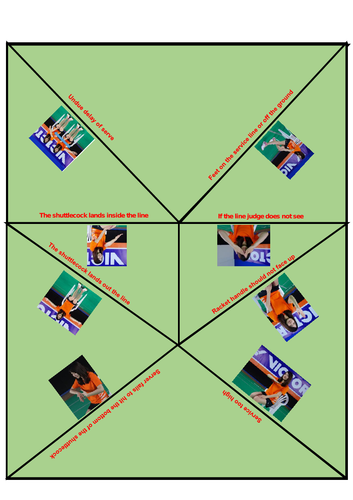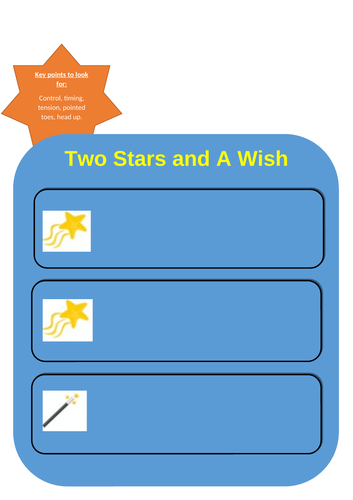
17Uploads
10k+Views
1k+Downloads

1% Club Gameshow
1% Club Gameshow PowerPoint with questions that challenge you mentally.
Fun to use as a tutor time activity to get students thinking!
**Easier editable and adaptable to add or change questions. **
Rules:
We asked the cross section of the British public a list of our unique questions.
Based on their answer we can tell statistically what percentage they got right.
We will ask you those questions to you.
We will start with the easiest one at 90% that Britain got right and then end with the most challenging question that only 1% of the British public answered correctly.
Each of student will start off with $1000 if you get one question wrong you are out of the game and the money goes into the prize pot! (You can still play on we are not mean, but you cannot be the winner!)
Audio for a timer on the top left hand side of the question slides.

Fitness Gym Station Posters
Posters to show different workout stations. Explains each of the stations and what component of fitness they use. Good for BTEC Unit 1. Also fill in worksheets to highlight what students did in the lesson.

Differentiated Heart Rate and Borg RPE Scale Practical Lesson
To worksheets for higher and lower ability students to record their results to see how your HR can change depending on the exercise they are doing and the effort they put in.

Anatomy and Physiology Organisers/Posters
A bundle of Anatomy and Physiology organisers/posters for the following areas:
Muscularskeletal Systems
Cardiorespiratory Systems
Energy Supply and the Effects of of Exerices on the body
Simple Biomechanics.
Useful for students use and for display boards.
Based of the CIE Physical Education (0413) syllabus.

Fitness Intensity Recording Sheet
Record HR and Borg RPE Scale to identify the relationship between them. Ideal for practical lessons.

Badminton Peer-Assessment
Breaking down each of the shots in badminton. Students will be able to assess each of the shots. Great for practical lessons and BTEC.

None Participant Lesson Activity
None participants can become a coach, pundit or a captain to help a team or player to improve their performance and tactics. This allows pupils to gain knowledge and ensure they are still actively learning within the lesson.

BTEC Tech Award in Sport Student Template- Component 1(LAA, LAB, LAC)
A word document template for students to guide them in what is included within the coursework. This includes all of component 1 learning aims.

Examination Data Summary
This spreadsheet can help to inform your teaching for future lessons. By inputing students marks per question clearly highlights what individual students are struggling with in a particular component/unit or whether it is the longer mark questions such a 6 to 8 marks.
In addition, you can also see what areas as a class students need to recap to aid your planning for future lessons.
There are numerous tabs for different times or the year for example:
End of units
End of Year etc.
This will provide a evidence to support students and show the progression they have made through the year or in fact the two year course.

GCSE Anatomy & Physiology Notes
Notebook with notes for Anatomy and Physiology components including the following:
Front Cover
Content Page
Note Section for own notes
Skeletal System
Joints
Muscular System
Respiratory System
Circulatory System
Energy System and effects of exercise
Simple Biomechanics
Includes diagrams and drawings with sporting examples.
Follows the CIE IGCSE (0413) Spec

GCSE Health, Fitness & Training Notes
Notebook with notes for Health, Fitness & Training components including the following:
Front Cover
Content Page
Note Section for own notes
Health & Wellbeing
Diet & Energy Sources
Components of Fitness
Health Related Fitness
Skill Related Fitness
Fitness Testing
Test Protocols (10 pages)
VO2 Max
Principles of Training & Overload
Methods of Training (6 pages)
High Altitude Training
Reasons for Warm Ups & Cool Downs
Includes diagrams and drawings with sporting examples.
Follows the CIE IGCSE (0413) Spec

Unit 1 Sport BTEC- Types of Speed Training
Posters for the types of speed training. Acceleration, interval and hollow sprints. Good to use for practical lessons. For example get pupils to perform the different types of training, then in small groups discuss the names of the training and what the advantages and disadvantages for them/ in there groups provide on type of training them each student must explain there training to a different member of a group.

Physical Education Reward Postcards
Postcards to send home to parents/guardians for Physical Education lessons. Four colours included.

Student Behaviour Tracker/ Report P.E.
A passport Tracker to be used for P.E lessons to support pupils to met targets. The P.E. report will highlight areas to improve and achievements. Comes with postcards for parents/guardians.

Differentiate Badminton Umpire Signals- Trangram Puzzle/ Homework
Differentiated Trangram activity to allow students to recap the correct umpire signals in badminton. Ideal for BTEC Practical Sport. Students have to put the puzzle together matching the picture to the description.
Also homework or task activity to connect the umpire signals in badminton.

The Chase Quiz- Assessment Stragegy
Powerpoint to assess students understanding of the topic. Good for BTEC/ GCSE.

Two Star, One Wish Assessment
Students can self/ peer assess on multiple sports and activity lessons. Allows student to develop.




